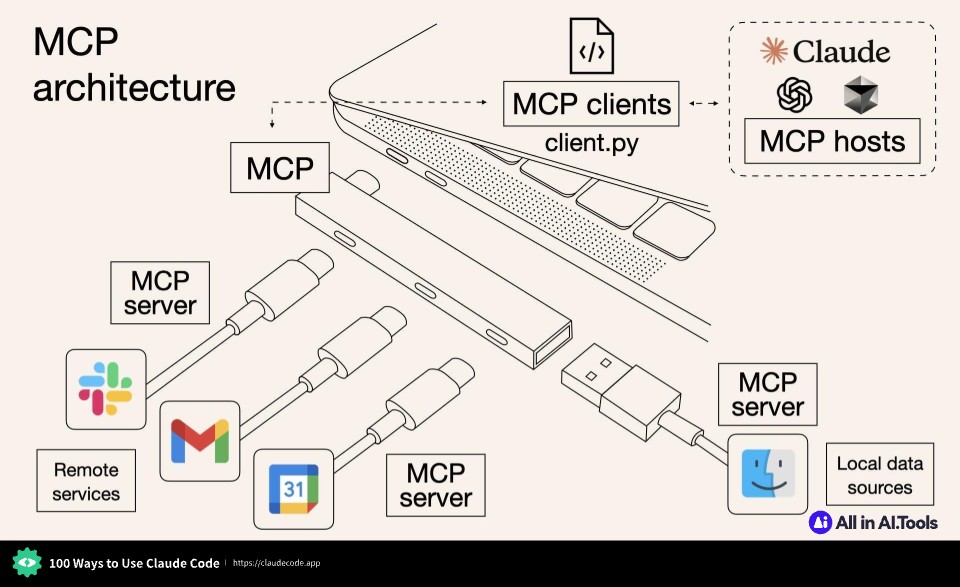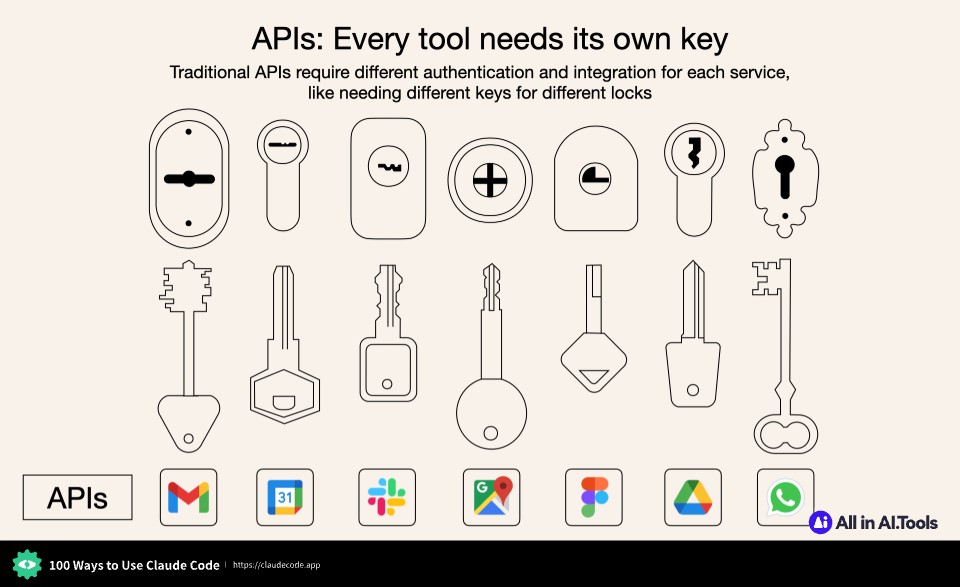Discover and integrate MCP servers to extend Claude's capabilities
This Model Context Protocol (MCP) server provides tools for structuring and extracting data from text according to JSON templates.
Official MiniMax Model Context Protocol (MCP) server that enables interaction with powerful Text to Speech, image generation and video generation APIs.
MCP Toolbox for Databases is an open source MCP server for databases.
Documentation Generator MCP Server for automated documentation creation
A simple TypeScript library for creating MCP servers.
Connect AI assistants to your ERPNext instance via the Model Context Protocol (MCP) using the official Frappe API.
A MCP Server implementation for interacting with Unreal Engine instances through remote Python execution.
MCP Server for transcribing videos via video links and summarizing video content
k6 MCP server
Playwright (with stealth) Model Context Protocol Server - Tool to automate Browsers and APIs in Claude Desktop, Cline, Cursor IDE and More 🔌
Implementation of Anthropic's MCP protocol for Firebird databases.
Allows AI assistants such as Cursor/Cline/GitHub Copilot to use Google's lighthouse tool to measure perf metrics for your webpage. You can then run an agentic loop and get the assistants to optimize those metrics!
An MCP (Model Context Protocol) server for performing accessibility audits on webpages using axe-core. Use the results in an agentic loop with your favorite AI assistants (Cline/Cursor/GH Copilot) and let them fix a11y issues for you!
Model Context Protocol (MCP) PRIDE API Server implementation.
⚡ C̷h̷u̷c̷k̷N̷o̷r̷r̷i̷s̷ MCP server: Helping LLMs break limits. Provides enhancement prompts inspired by elder-plinius' L1B3RT4S
An MCP server that enables natural language commands for managing GitHub repositories
A Model Context Protocol (MCP) server that enables AI assistants to generate images, text, and audio through the Pollinations APIs. Supports customizable parameters, image saving, and multiple model options.
MCP server, providing AI with access to the payman documentation
Agile Kanban board backed by SQLite and exposed via the Model Context Protocol (MCP). Lets LLMs read, comment on, and work on tasks. Fully compatible with clients like Roo, Cursor, Control, and Cline. Drop it into any project to enable human–AI collaboration on delivery workflows.
Tools for seamless integration of different systems and services.
Cloud infrastructure and deployment management tools.
AI-powered tools for creative design workflows across 3D and 2D mediums.
AI-powered tools for product development, design review, and performance monitoring.
Tools for monitoring, analytics, and operational efficiency.


Explore Claude Cowork, Anthropic's groundbreaking AI agent built on Claude Code foundations. Discover how it enables file access, document creation, and task automation for everyone—not just developers. Learn how it integrates with MCP servers and extends Claude Code capabilities.
Explore the major [Claude code](https://claudecode.app) 2.1.1 update featuring 109 CLI improvements, automatic hot reload for skills, sub-agent execution, enhanced security, performance optimizations, and smarter prompt behavior. Learn about all the new features and improvements.
Master the art of prompting Claude with Anthropic official guide. Learn 10 proven strategies to 10x your Claude Opus and Sonnet 4.5 performance. Discover how better prompts lead to better results with practical examples and real-world applications.
Deep dive into sophisticated SSH workflows for Claude Code power users. Learn zero-friction authentication, session management, and advanced techniques that transform your vibe coding experience.
MCP (Model Context Protocol) is an open protocol that standardizes how applications provide context to LLMs. Think of MCP like a USB-C port for AI applications, providing a standardized way to connect AI models to different data sources and tools.
MCP Servers are lightweight programs that expose specific capabilities through the standardized Model Context Protocol. They act as bridges between LLMs like Claude and various data sources or services, allowing secure access to files, databases, APIs, and other resources.
MCP Servers follow a client-server architecture where a host application (like Claude Desktop) connects to multiple servers. Each server provides specific functionality through standardized endpoints and protocols, enabling Claude to access data and perform actions through the standardized protocol.
Yes, MCP Servers are designed with security in mind. They run locally with explicit configuration and permissions, require user approval for actions, and include built-in security features to prevent unauthorized access and ensure data privacy.